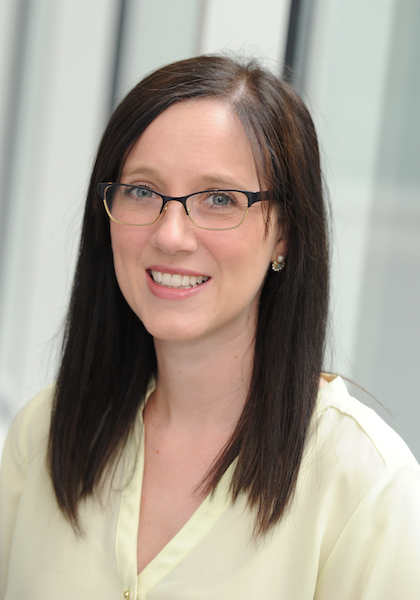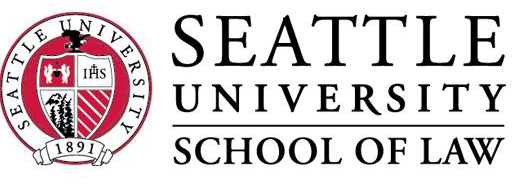Beyond the Billboards: Personal Injury Law, Defensor de Justicia
Anderson Franco is a personal injury lawyer for his monolingual Spanish-speaking community, helping them understand their rights when they get hurt and how to access the legal system, even if they're undocumented. He highlights how you can connect your personal mission and values, whatever they may be, to legal practice. Anderson chose personal injury to make his mark, but demonstrates that motivation isn't enough. You still need to be a good lawyer, build trust with clients and your lawyer network, run your practice profitably, and constantly learn. Anderson is a 2013 graduate of the University of California Berkeley School of Law.
Transcript
Katya Valasek:
We're joined today by Anderson Franco, a 2013 graduate of UC Berkeley School of Law. Anderson is a personal injury attorney. Personal injury is one of the most common practice areas out there and not just in terms of all the ads and billboards we see when we're out and about. So, it's an area of law that's on a lot of people's radars. Given preconceptions, what do you tell people you meet at a dinner party about what you do?
Anderson Franco:
I tell people that I'm a personal injury attorney. I help injured people get compensated for their injuries. I am fluent in Spanish, so I predominantly serve the Spanish speaking community, the monolingual community in California, in San Francisco Bay Area. So I tell people that I particularly use my Spanish speaking skills to provide legal access to the Spanish speaking community.
Katya Valasek:
So when I talk about my podcast with people, one of the things I say frequently is, it's an opportunity for you to hear about what you don't see on TV. And personal injury lawyers are represented in lots of things on TV. So I'm curious to hear about what you see that the television gets wrong. What are things that people misunderstand or misconceptions they have when they come in to meet with you based on what we've seen on television?
Anderson
My friends joke and say that I'm an ambulance chaser because I'm a personal injury attorney and that is a misconception – or popular misconception. What I do is I represent people who are actually injured. What I do is I help them obtain fair compensation for their injuries. So the misconception is that personal injury attorneys are in it for the money or in it to extract as much money as possible. And it's an unjust enrichment for the client. But really what we do is get fair compensation for clients who are actually injured and never asked to be injured. Oftentimes their injuries are severe enough that they may never recover completely.
Katya Valasek:
As someone who specializes in representing Spanish speakers, does this mean you work with many undocumented individuals?
Anderson Franco:
Yes, many of my clients are Spanish speakers and often are undocumented. And part of what I do is explain to people and my clients that they still can pursue the legal process regardless of their immigration status. Unfortunately, not many Spanish speakers are aware that they can still pursue the legal process. So that's why I particularly like to educate people on that.
Katya Valasek:
I think that this is such an interesting example of why law has historically been taught as a general degree, because while your primary focus is personal injury, and it sounds like it's a bulk of what you do, in the answer you just gave, it's obvious that you wear lots of other hats as you're counseling your clients.
Anderson Franco:
Definitely, that's definitely true. So, as I speak to clients or potential clients, I'm often issue spotting and trying to figure out what other legal needs they may have. While personal injury is straightforward, there's often other issues that come up. For example, the most common is workers' compensation. So often people call me, and they're injured on the job and don't realize that they both have a workers' compensation claim and a personal injury claim. Or by filing a workers' compensation claim at work, they're being retaliated against. And that's where I'm able to explain to them that it’s illegal and that you might need an employment attorney. So often what I do is counsel my clients on the different issues that arise because of their situation. While I don't practice employment law or workers' compensation law, I can at least point them to the right direction.
Katya Valasek:
So speaking of issue spotting, you actually started out initially on the other side of the table doing insurance defense. Tell me about that experience.
Anderson Franco:
So out of law school, I believe that the best way to get training was to work for the defense because I was able to get more mentorship and understand how insurance companies work. So, I started off my career representing insurance companies, representing big companies on the defense side of personal injury claims. And that process taught me how the defense thinks and operates. And it has been an invaluable experience.
Katya Valasek:
Okay, so I wanna pause for a second and just clarify what these different areas are. When you're dealing with a personal injury case, what types of issues are your clients coming to you with?
Anderson Franco:
Overall personal injury encompasses injuries that happen due to the negligence of others. The majority of my clients involve workplace injuries like construction accidents, car accidents, and then also premises liability. So slip and falls at a grocery store or merchandise falls at a grocery store. So what happens is often when someone sues a company or an individual, that company or individual often has insurance. So an insurance carrier then hires an insurance defense firm to represent the defendant in that case.
Katya Valasek:
So then to close the loop, you started your career working against the people you are representing now. Was that deliberate?
Anderson Franco:
I went to law school knowing that I wanted to use my Spanish skills in law. And I wasn't certain what specific practice area that I would represent Spanish speakers. So I went into my first job as insurance defense deliberately, knowing that regardless of what Spanish speaking area or practice area that I would go into, that I would have to know how the defense thinks and how insurance companies think. And that's because many claims are brought against defendants who have insurance. So I deliberately went to insurance defense to learn how insurance companies operate and how the adjusters think and how defendants defend cases. Through that process, I identified particularly that I was most interested in personal injury and that I thought that I can most make an impact representing plaintiffs in personal injury claims.
Katya Valasek:
Was part of that because you understood or you saw during your insurance defense experience that the individuals were sometimes outgunned by the insurance defense companies. They had deeper pockets, they had more support, more people behind them. Was that part of what motivated you?
Anderson Franco:
That's definitely part of the insight that I obtained while doing insurance defense – was realizing how the insurance companies operate and how, ultimately, they care about the profits more than insureds or more than injury victims. So that's part of it. And then the other part of it really was, as I grew older and as I was a lawyer, more people would tell me about a cousin who was injured or a friend who was injured. And then I realized that that these people could be helped by someone who spoke Spanish.
Katya Valasek:
When you transition to the personal injury work, you transitioned into a unique workplace setup. You have your own book of business, but you are associated with the firm. So tell me more about how that works.
Anderson Franco:
Right, so I'm still with the same firm that I joined after law school. And the firm now looks a little bit different than when I joined some nine years ago. When I first joined, it was primarily insurance defense. But over time, other attorneys at the firm brought in different types of business. And now it's expanded beyond just insurance defense. The firm is very open to representing clients that make sense. Because of that, I gradually started obtaining personal injury clients. And then over the last couple of years, now I exclusively represent personal injury plaintiff side clients.
Katya Valasek:
And you're not considered a partner at the firm, correct?
Anderson Franco:
Right. The firm does not have any titles. We don't have partners. We don't have associates. We're all just lawyers.
Katya Valasek:
So then, can you talk about some of the benefits to not being a solo practitioner? What is the draw to having this affiliation with this greater group of lawyers?
Anderson Franco:
There's many benefits. Personal injury cases can get expensive. It's expensive to hire experts, depositions, investigators, that is costly. And we don't get paid until we recover money for the client, which sometimes can be as quick as six months, other times, as long as a couple of years. So because of that, being part of a pool of attorneys where the firm can incur the costs and finance cases is really helpful compared to being a solo attorney where you can become more financially strapped the more cases you have, the more costs that you have. So being part of a firm really helps from that financial aspect. And the other thing I'll add is being part of a pool of attorneys is also helpful in best representing clients because I speak with my coworkers all the time about my cases and I'm able to roundtable cases to discuss strategies and how to achieve the best outcomes.
Katya Valasek:
And there's other support too, right? Paralegals, assistants, some of the administrative stuff isn't all on your shoulders.
Anderson Franco:
Exactly. So we our accounting department, paralegal secretaries. So pooling those resources helps us and it helps with the costs compared to if I was on my own.
Katya Valasek:
And in terms of pooling resources, is that all worked out through a contract when you joined the group?
Anderson Franco:
Right, right. Through negotiations, we figured out what made most sense for the attorneys who have a book of business and in terms of sharing those costs.
Katya Valasek:
So that's a benefit too. You get the option of bringing your clients into a conference room, in an office, to meet with them. And you don't have to worry about the real estate or finding a space that you could afford on your own based on just your book of business.
Anderson Franco:
Exactly. I still have a good amount of clients who want to meet face to face, who want to sign documents in person. So it's helpful to have an office with staff. Sometimes I can have the client go in and into the office and my staff will greet them without me needing to be there. So that's another benefit of being part of a group.
Katya Valasek:
You talked a little bit about how you get paid. I am curious about how you find your clients. I would imagine it's unusual for you to have repeat clients.
Anderson Franco:
Repeat clients are not typical. I first started getting clients by word of mouth through friends who are lawyers, who knew someone who spoke Spanish who needed legal assistance. And now over time I've learned that my best way of getting clients is really telling the world what I do. So telling friends and family. But also doing really good work for anyone who calls me -- not just clients, but also potential clients. I do get calls from people who I cannot represent it might be a different area of law or it's just not the sort of case that I would handle. When I get those calls, I try to be as courteous as possible and provide as many resources as possible. So, for example, if someone calls me and it's clear that they need an employment attorney, what I do is explain to them why they need an employment attorney and provide them referrals to employment attorneys or at least websites where they could find additional resources. So what I've learned is by being friendly and being courteous to potential clients, they think of me and then they refer their coworkers or their friends. So I really rely on being a good person and doing good work so that people think of me.
Katya Valasek:
Do you have any of those advertisements we sometimes see on buses or benches or along the roadway?
Anderson Franco:
I don't have any of those advertisements. I don't really advertise.
Katya Valasek:
Well, you do social media though, right?
Anderson Franco:
I do. I do create a TikTok videos and YouTube videos. And that started from my interest in just providing short clips to inform the Spanish speaking community as to their legal rights. So my social media is all in Spanish and it's just to provide clips or information. So for example, I do videos explaining that if you are an undocumented immigrant, you can pursue a lawsuit. I explained that even if you're injured on the job and it's your own fault, you can pursue workers compensation. So I really started my social media as a matter of providing very basic legal advice to Spanish speakers.
Katya Valasek:
Do you put a disclaimer that these videos are not considered legal advice?
Anderson Franco:
Yes, at the bottom of all my videos and mentions that it's not legal advice and you should consult your own attorney. And it's for entertainment purposes.
Katya Valasek:
What has been your most successful TikTok video?
Anderson Franco:
Interestingly enough, my most successful TikTok video is a video regarding criminal law, which I don't practice criminal law. And I think the video discusses a particular Los Angeles ordinance that limits how many hours you can sleep in your car, which has nothing to do with personal injury law. But I created that video because I thought it was an interesting law that people might be interested in.
Katya Valasek:
That's funny. I guess any content creator knows you cannot predict what is going to go viral. So if that gets people watching your videos, maybe you've gotten a few referrals through that. Who does the process of vetting requests that come through your social media work that you do?
Anderson Franco:
I do the majority of my intake calls. I put my telephone number there and often people email me or text me or give me a call and if I'm available, I do the intake. If I'm unavailable, then I pass it on to my assistant who can do the intake for me.
Katya Valasek:
So those inquiries, I'm sure, could cover any number of areas of law that you may or not be a good fit for you. But what about attorney referrals or networking through other practicing attorneys in the area?
Anderson Franco:
I collaborate a lot with attorneys where they send me cases and I send them cases or potential clients. What I do is with the attorneys who I refer potential clients to, I make sure that they are attorneys who are competent and can do good work. But particularly my referral list of attorneys consists of friends who I know from law school or people I've met at networking events. And often my list is Spanish speaking attorneys because those are the majority of the calls that I get.
Katya Valasek:
And I’m sure for that population that you're working with, you've established that trust and you giving a referral to someone carries a lot of weight for the person who's reaching out. So they must be grateful that the recommendation is going to be someone else who's a Spanish speaking attorney.
Anderson Franco:
You're exactly correct. I take referring potential clients to attorneys seriously because it reflects my reputation. Going back to what I previously mentioned, I want to do good work for someone, even though I'm, they're not going to be my client. I want to make sure that they're in good hands.
So because of that, the people who I refer to the attorneys, they're often thankful because it's also kind of difficult to identify someone in a specialty who speaks your language. It's not necessarily the easiest task.
Katya Valasek:
Are there any referral fees that you get when you refer someone to a case that's successful?
Anderson Franco:
So in California, referral fees are allowed, as long as you disclose it as allowed under the state bar. But not every attorney provides referral fees, just some do. And there's particular practice areas that they generally don't. So when I refer potential clients, it's not necessarily encouraged or motivated by referral fees. It's more motivated by sending it to someone who I know is going to do work. Whether I get a referral payment or not, I trust that the person would be well represented and also I trust that that attorney, they'll think of me or consider me, if they ever hear of a personal injury case.
Katya Valasek:
Absolutely. And, you know, I don't want to think of referral fees as a money grab, but I was thinking more along the lines that you're doing work for these clients that you can't actually represent, right? To hear their issue, to issue spot like you referenced earlier, and then make a connection with another attorney that you trust who's a good fit. If you are doing all your intake work, five or six of those a week, that's a pretty significant chunk of time.
So you said that the referral fees are allowed by the state bar. Do they set limits on what those fees can be?
Anderson Franco:
As far as I know, there are no limits, but it cannot be an unconscionable amount. The rules specify that the potential client has to be aware of the fees, that just by having a referral fee, the cost to the potential client isn't increased and has to be executed by both attorneys.
Katya Valasek:
So I want to talk a little bit more about how you do work in your current setting. So you are currently practicing personal injury work in the same group where you were practicing insurance defense initially. How do you avoid conflicts?
Anderson Franco:
So first, I only practice on the plaintiff side, personal injury, so I don't practice on the defense cases, but also it's difficult to have a conflict because it's rare that on the defense side, we represented the plaintiff who I'm representing. Um, so often the cases can be against a store or can be against individuals who, uh, were operating a vehicle. And to date, I have not had any conflicts because we had not previously represented the store or the individual. The conflict of interest arises based on the parties involved in the lawsuit, not necessarily the insurance company.
Katya Valasek:
Oh, see, I'm learning something now. Tell me more about that.
Anderson Franco:
For example, I have represented insurance companies on the defense at my firm regarding particular lawsuits. And now on the plaintiff side, I filed lawsuits against individuals or companies and they are insured by the same insurance companies who I represented. Under these circumstances, there are no conflict of interest because, although it's the same insurance company involved, it's different parties, different facts. So there are no conflicts of interest.
Katya Valasek:
So that's really interesting and something that I didn't completely understand. So if you represented Insurance Company A through their affiliation with the widget company, you in your current role could still have a case against Insurance Company A as long as you're suing the candy store instead of the other business.
Anderson Franco:
Exactly. In that situation, there is no conflict of interest.
Katya Valasek:
I had no idea. And as someone who went to law school and sat for the bar exam, it is very humbling sometimes to still realize how much I don't know about the practice of law.
Anderson Franco:
And that's a good point. The practice of law requires a lot of learning. We're constantly learning. I graduated law school nine, 10 years ago, and I still, this morning, I was doing a lot of legal research.
Katya Valasek:
I know that you come from an immigrant background. And I also know that your brother is also a lawyer. So I'm just wondering, like, how proud are your parents of what the two of you have accomplished?
Anderson Franco:
My parents are extremely proud. They migrated from El Salvador, uh, many years ago and they came to the country just hoping to provide a brighter future for their children. And thankfully with proper guidance from my parents I became a lawyer and my brother also became a lawyer.
Katya Valasek:
Do they know how significant their presence and their story is in the trajectory of your career?
Anderson Franco:
My parents are very well aware. They are my best friends and they, along each step, I've shared how thankful I am for their sacrifices and I recognize that I am an attorney now and I'm in the position I am now thanks to them.
Katya Valasek:
And in a way you empower them now, right? They can also assist their community because of what you and your brother have accomplished and what you do for people with similar backgrounds
Anderson Franco:
That's correct. My parents share what they know about the legal process to their family and friends. They're retired now, but in their retirement communities, they like to tell all their friends about their attorney children. And also they are empowered. My parents have learned so much law from me and my brother. There aren't a ton of Spanish speaking attorneys. And that's actually what emboldened me to get into the career where I am now. Where growing up, I saw that I didn't know the legal process and my parents didn't know the legal process. And being monolingual speakers, it was difficult to understand how to contact an attorney. And we thought attorneys were expensive. We didn't know anything about contingency fees, for example.
So growing up in that atmosphere encouraged me to become a lawyer who prioritizes the Spanish speaking community because I wanted to be able to provide legal resources to the Spanish speaking community and to be able to explain to them what a contingency fee is. And if you're in an accident, you don't need to pay an attorney hourly and you can afford an attorney. Those are the sort of legal tidbits that I wish I knew or I wish my parents knew when we were younger. Now that I'm older and now that I have the education and knowledge, I want to share this with people and I want to share it to people in their language.

 Katya Valasek
Katya Valasek






